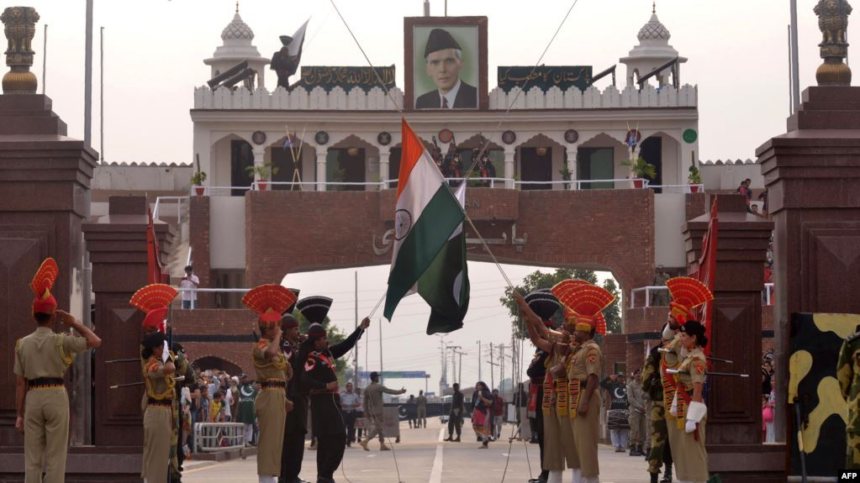RASC News Agency: The indefinite closure of the Atari-Wagah border crossing between India and Pakistan has triggered serious concern among Afghanistani business leaders, who warn that a prolonged disruption could critically impact regional trade and humanitarian aid flows to Afghanistan. With no alternative land route that is both efficient and economically viable, Afghanistani exporters now face mounting uncertainty. This development follows a deadly terrorist attack in the Pahalgam region of Indian-administered Kashmir, which resulted in the deaths of 26 individuals, including 24 Indian tourists. In response, both New Delhi and Islamabad announced the suspension of all activity at the key border crossing.
“We are still waiting for clarity,” an Afghanistani trader told the Indian Express. “It remains uncertain whether trade between India and Afghanistan will be allowed to continue.” The Atari-Wagah border has served as the only remaining overland commercial route between India and Afghanistan since India formally suspended trade relations with Pakistan in 2019. Any closure of this passage directly hampers the flow of critical goods, including medicines, food supplies, and machinery. In the aftermath of the collapse of the previous Afghanistan government and the worsening humanitarian crisis, India has on several occasions sent emergency shipments primarily wheat through this corridor. Due to the lack of a direct maritime or land route that bypasses Pakistani territory, India has had no choice but to rely on limited cross-border permissions, granted by Pakistan exclusively for humanitarian purposes and under close supervision.
Under this arrangement, Indian consignments are transported by truck to the Atari crossing, then forwarded into Afghanistan. This process has been pivotal for addressing food insecurity in Afghanistan, particularly amid growing economic turmoil. According to official statistics, trade through the Atari corridor had declined in recent years due to political tensions and the COVID-19 pandemic. However, a modest rebound in trade volumes was observed over the past year. Analysts now caution that the latest shutdown could not only interrupt bilateral trade but further isolate Afghanistan from regional and international markets aggravating its already fragile economy.
The consequences could be far-reaching. Afghanistani traders fear severe shortages in essential goods, rising inflation, and a worsening of humanitarian conditions. Furthermore, the closure of the Atari-Wagah border presents a significant new challenge to the already fragile geopolitical relationship between India, Pakistan, and Afghanistan. Experts stress that urgent diplomatic engagement is required from all parties to avoid further deterioration and ensure the continued flow of trade and humanitarian aid to Afghanistan.






